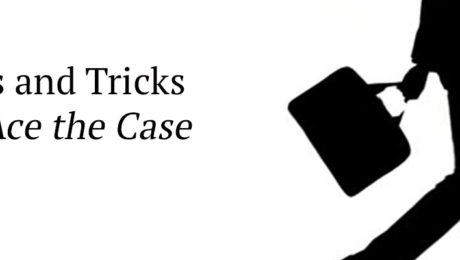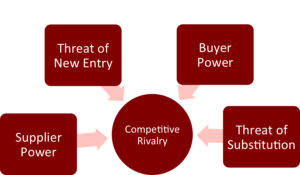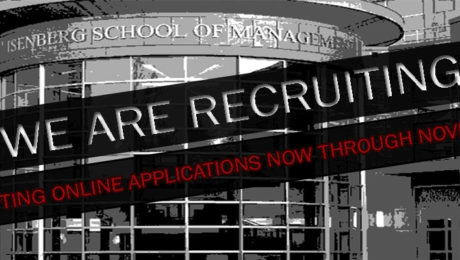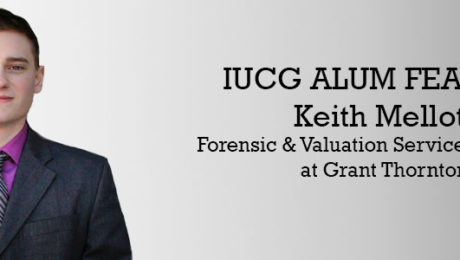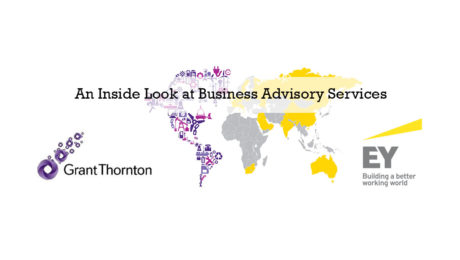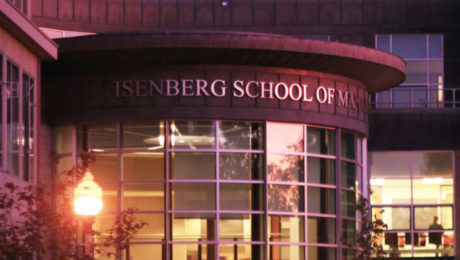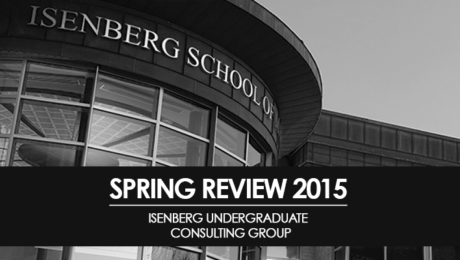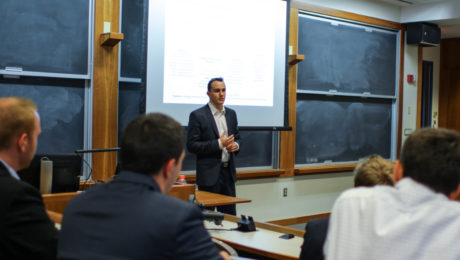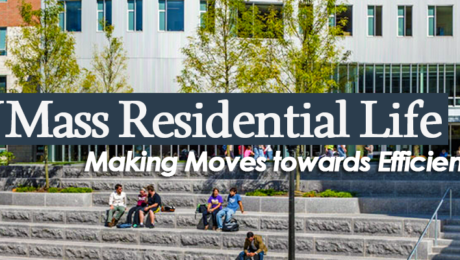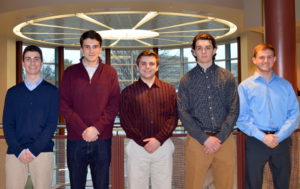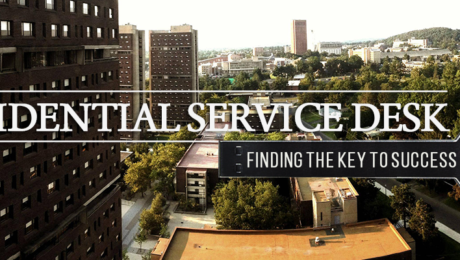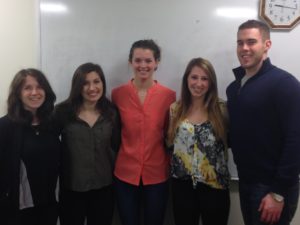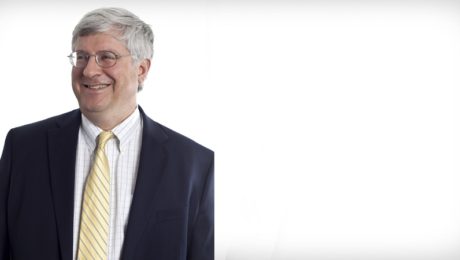Tips and Tricks to Ace the Case
Thank you to everyone from the UMass community who applied to join IUCG for the Spring semester. For those of you interviewing this weekend, we have some quick tips for the case interview. Below you will find a selection of popular frameworks used to solve an array of cases, as well as links to some helpful resources. Study up, and good luck!
Profitability Framework
The profitability framework is considered one of the most popular frameworks, and is used when addressing a company that has issues with their bottom line.
Remember: Profit = Revenue – Costs
In a more holistic view: E(P=R-C)M, where E=economic conditions, P=profit, R=revenue, C=costs, M=market conditions
Revenue includes price per unit and number of units sold. Types of costs includes Fixed Costs (overhead and insurance) and Variable Costs (new machinery, packaging, raw materials, cost per unit, number of units, etc.)
Economic Conditions to keep in mind:
• Unemployment
• Strength of the Dollar
• Interest Rates
• Consumer Spending
Market Trends
• What are three year trends for this industry?
Note: Revenue can be further broken down by demographic, location, product line, etc.
Porter’s Five Forces
Are you trying to figure out where a company has room for growth? Are you looking into the company’s overall strategy regarding the creation of a new product? These are just two potential situations where Porter’s Five Forces will come in handy. Use this framework for a high level view of what your company’s strategy should be.
Supplier Power
• Number of suppliers
• Size of supplies
• Differentiation of inputs
• Your ability to substitute
• Switching costs
Threat of New Entry
• Time and cost of entry
• Specialist knowledge
• Economies of scale
• Cost advantages
• Technology protection
• Barriers to entry
Competitive Rivalry
• Number of competitors
• Quality difference
• Switching costs
• Customer loyalty
Buyer Power
• Number of customers
• Price sensitivity
• Size of each order
• Differences between competitors
• Bargaining leverage
Threat of Substitute
• Substitute performance
• Cost of change
IUCG’s 8 Case Commandments
- Pay attention to what the question asks
- Take notes
- Verify and ask clarifying questions
- Think before you speak
- Work the numbers
- Be coachable
- Close and summarize
- Don’t forget the original question
Below you will find some useful links relating to case interviews and how to prepare for them.
• McKinsey Interview Advice: http://www.mckinsey.com/careers/join_us/interview_prep
• Case Interview Prep from a former McKinsey Interviewer: http://www.caseinterview.com/case-interview-preparation
• BCG Interview Advice: http://careers.bcg.com/join/practice_cases.aspx
Feel free to do your own research, and good luck!
- Published in Publication
Join IUCG: Who We Are and What We Do
It’s the most wonderful time of the year—IUCG is recruiting Junior Analysts for the upcoming spring semester! IUCG is looking for creative and motivated students who are interested in getting real-world, hands-on project experience. Our members are intellectually curious and strive for excellence in all they do. Interested? Here’s a glance at who we are and what we do.
Who we are
IUCG was founded on the values: collaborate, solve, accelerate. We incorporate these values into every facet of the organization, from outside of the group on projects to within club meetings in development workshops. IUCG has fostered a culture of mentorship, where every member can learn from each other, and every member has something unique to offer the group. We constantly push to grow and develop both our members and the group as a whole. Every semester we strive to improve and innovate so that we can provide our clients with quality service and quality recommendations.
What we do
Currently in its fourth operational semester, IUCG has worked with a number of diverse organizations. Our members have provided IT solutions for small restaurants, restructuring for on-campus RSOs, and process improvement recommendations for UMass offices. These pro-bono consulting engagements provide benefits for both IUCG members and IUCG clients; giving members the chance to add value to local organizations, and clients the opportunity to receive free assistance to improve their operations.
Within the organization, we focus on developing our members as individuals. Our weekly develop workshops are a platform for students to refine both their hard and soft skills. This semester we held a small internal case competition, taught the basics of process mapping in Visio, covered the ins and outs of LinkedIn, just to name a few. IUCG is an organization that values intellectual curiosity and the desire to learn. The development workshops complement that desire by providing our members with the opportunity to learn new skills outside of the classroom.
Join IUCG
Do you have a propensity for creative thinking and problem solving? Do you want the opportunity to add value to both the Isenberg and Amherst communities?
IUCG is accepting applications from now until November 15 at 5 p.m.
Apply online: isenbergconsulting.org/membership.
- Published in Publication
Alum Feature: Keith Mellott
Alum Feature: Keith Mellott, Class of 2015
Q & A with Forensic & Valuation Services Associate at Grant Thornton LLP
Why were you drawn to consulting?
I have never thrived in consistent, predictable environments. I love dynamic situations that keep me “on my toes” and force me to constantly learn new skills. Consulting is a perfect fit for somebody like me; it provides the opportunity to work within drastically different industries and acquire skills that I never would have in a more controlled environment.
What are three words to describe yourself and how did those characteristics contribute to your success in finding a job?
Curious, energetic, and motivated. Consultants are a different breed. It takes one to know one. The hours can be demanding and the intellectual challenges strenuous. During the job hunt, it is critical to convey a genuine desire to learn and a willingness to work.
Why did you choose to start your career at Grant Thornton?
Grant Thornton is an exceptional company. Their reputation speaks for itself. The great thing about starting a career at GT is the options you have. There is plenty of room for internal upward mobility, but GT will also provide you with the technical skills and the credibility to pursue advanced degrees at top schools.
Can you tell us about your role in Forensic & Valuation Services?
I work within the Forensic, Investigate, and Dispute Resolution Services department. Our department offers a variety of services. On a basic level, we investigate cases of financial fraud and provide expert financial and economic analysis during the litigation process. It involves a lot of data analytics, economic valuation, and forensic accounting.
What types of projects are you working on?
While I can’t speak too much about specifics, I can say that I am working on three very different projects! That’s my favorite part about my job; I am not restricted to one task or function.
What has been the biggest challenge for you while at GT?
My biggest challenge has not been related to GT itself. The transition from a college lifestyle to a working lifestyle should not be taken lightly. My daily routine requires more discipline and structure than it did in college. I certainly did not wake up at 6 in the morning during the school year! I have slowly adapted to the point where I am now accustomed to sometimes having to work 12-14 hours in a day and still accomplishing things outside the office, such as going to the gym or finding time for hobbies/interests.
How do you feel IUCG helped prepare you for work at GT?
The client-consultant relationship is at the core of every consulting firm’s success. IUCG taught me how to foster these relationships and maintain them throughout the course of an engagement. The hands-on experience with real life projects is irreplaceable.
What advice do you have for students interested in consulting? What do you wish you had known?
Consulting is hyper-competitive. You need to approach your career goals the way professional athletes approach theirs. You should have objectives every day that you strive to accomplish. Personally, I make a 5-year plan, a 3-year plan, a 1-year plan, a monthly plan, a weekly plan and a daily plan. You need to have some sort of vision for your future (even if it’s a rough outline) and you need to constantly monitor your progress towards your goals.
Final thoughts?
Learn how to use all the software you can! I cannot stress that enough. If you are masterful at Excel or programs like Stata, you are going to have an advantage over the competition. I would also advise learning at least one computer programming language. I started with R, which focuses on statistical and data analysis. Figure out what kind of consulting you want to do and research which programming languages will be most helpful for that type of work. Finally, the last piece of advice I can offer for undergraduates hoping to one day work in consulting is to forge as many professional relationships as possible in all kinds of industries. You never know who you might need to call upon for information or a favor!
- Published in Publication
An Inside Look at Business Advisory Services
In honor of recruiting season, IUCG hosted information session with Ernst & Young and Grant Thornton to learn the ins and outs of Business Advisory Services (BAS). Both companies recruit at UMass and offer an array of internships and entry-level opportunities ranging from risk advisory services to business consulting ventures. The resounding theme in both presentations was that at whichever firm you choose to join, the work will be relatively the same; what separates them is their culture and the way that impacts their processes.
EY Advisory is a 6.5 billion dollar global practice with 34,000 professionals worldwide. With a large international network already, EY has an initiative to double the size of its advisory practice by 2020. Throughout the talk, the Governance Risk and Compliance (GRC) practice at EY was highly emphasized, touching on their Financial Services Risk Management practice as well. Senior Manager John Wilbur reiterated EY’s passion for homegrown talent and their dedication to work-life balance. He highlighted a low utilization rate, their flexible work week, and frequent social outings. A major proponent of EY’s business advisory services is their accelerated management track, with advisors becoming managers after just 8 years with the firm. Wilbur remarked, “EY pushes you to hit the ground running. At the end of your first year, they want you to be able run client meetings, and at the end of your second year they want you to be able to go to client meetings on your own.” Another benefit of choosing an international firm like EY is an expansive network of alumni, many of whom maintain their ties to the firm and offer exit opportunities to EY employees.
Similar to EY, Grant Thornton emphasized the importance of their culture, which helps to determine the way they do business. Kaila Kennedy and Anna Kamenetsky, Senior Associates at Grant Thornton, shared their experiences in the business advisory practice during their visit with IUCG. Like EY, Grant Thornton’s talk highlighted their GRC practice, but the differentiating factor at GT is the cross-disciplinary work brought by their merging of GRC and business consulting. GT also primarily focuses on mid-sized businesses, which present completely different challenges than large corporations. Kaila and Anna spoke a lot about their opportunities to see the world while on the job—traveling to places like India, Ireland, Germany, Hong Kong, and Prague, as well as the hands-on learning their projects offered. Perhaps the most important take-away from their talk was a broader understanding of the culture of mentorship and the tight knit community that exists at GT.
After meeting with GT and EY’s Business Advisory Services representatives, IUCG held an intragroup case competition to foster team and community development within the organization. It was a great way to acclimate the new members to what IUCG is all about, and give them hands-on experience related to BAS. After getting an inside look at business advisory services and practicing their problem solving skills, IUCG student analysts are ready to begin their projects next week!
- Published in Publication
Chapter Two of IUCG
Welcome back UMass! After a summer hiatus, IUCG is back in its fourth operational semester. With a fresh group of analysts and three new faces on the E-Team, we’re ready to take on Fall 2015. This semester marks the beginning of a new chapter for IUCG. The founding members have graduated, and the mentees have become the mentors. We are moving with a purpose into unchartered territory and it is invigorating to continue the growth and impact of IUCG.
Even though the people who first created our culture of mentorship and professional development have moved on to bigger and better things, the values they instilled in us all remain. This legacy starts with foundational learning about consulting in our development workshops. This semester the student analysts will learn valuable skills from case math and financial modeling, to LinkedIn tricks and the right way to network. We pride ourselves on the variety of perspectives and skillsets within our group, with individuals from every major within Isenberg, as well as some majors outside of the business field. We each bring something unique to the table, and it allows us to build dynamic relationships and grow even more as individuals, as students, and as young professionals. Our slogan, “Collaborate. Solve. Accelerate.” is brought to life in the classroom through our development workshops and consistently throughout our client engagements.
Out of our twenty-seven members this semester, nine individuals comprise the new analyst class, making it through the pool of applicants with a 10% acceptance rate. Along with the new analyst class entered new E-Team members, specifically three individuals: Joe Winston, Director of Case Materials; Sara Clemente, Director of Finance; Bill Sennott, Director of Development. While our membership has changed, the same culture that prizes intellectual curiosity and the desire to give back to our community and our university remains.
We are excited to push forward and to continue to develop both the Consulting Group as a whole and our members individually. There are big things happening in the upcoming weeks so stay tuned! As the projects commence and recruiting season continues in full swing, IUCG will be busy prepping project teams and clients alike. We are meeting with recruiters from EY and Grant Thornton this week, so check back in for the low down on all things Business Advisory Services.
- Published in Publication
Spring 2015 Semester Review
Please find the Semester Review below along with the option to download a pdf version.
- Published in Frontpage Article, Publication
Tips from a Strategy Consultant
Life as a strategy consultant is not for everyone. It takes a strong will and a determined mind to withstand 16 hour days, weekly flights across the country, and long nights away from home. UMass Class of 2010 alumnus Charbel Kobrianos, now part of Accenture’s Global Strategy Group, clearly illustrated throughout his presentation last Thursday that the glamorous life of a professional consultant is not always all glimmer and gold. On the other hand, no day is the same as the last. Each new project provides a unique opportunity to work with corporate leaders, solving problems with impacts at a global level. As Charbel said, “Management consulting takes a great talent and an objective view to problems.” This is not an easy job, but it is extremely rewarding.
The global travel and fast paced work didn’t dissuade you from pursuing a career in consulting, so, how do you actually get the job? Charbel spoke to the challenges faced by students when attempting to break into a competitive industry like that of consulting. After graduating UMass in 2010 with a BS in Electrical Engineering, Charbel joined Accenture as an IT Consultant. Utilizing his networking skills, Charbel successfully maneuvered himself into the Accenture Strategy division within two years of employment. Breaking into the consulting industry can seem impossible to some, but Charbel offered IUCG some tips and tricks to getting on the right path.
The first hurdle of every career is getting the interview. Charbel suggested we follow his lead: network, network, network. Taking initiative and reaching out to partners and project managers within the firm allowed Charbel to move his career down the path he desired. As an undergraduate, focus your efforts on researching the firm and the position you’re applying for. Reach out to alumni and leverage your LinkedIn to get connected with individuals who could expedite the application process and help get your resume to the top of the stack.
Step 2: You’ve been invited to the interview, how do you prepare? Evaluate your competencies. The company does not exist to serve you; your role is to provide value to the company and its clients. Prove that you can increase their net worth. The food chain is as follows: “client, company, you.” Most importantly, do your homework. Prepare questions, study case questions, and read the recruiting material. Understanding the details of the company’s background and current events in the industry can give you a competitive edge.
You’re in the waiting room, suited up and ready for the interview; how do you land the job? Once you’re in the interview, make eye contact and stay calm. During the case, take your time to structure the problem and don’t be afraid to ask questions. Charbel mentioned that some of the best interviews feel like a conversation, rather than a question and answer session. At the end of the day, it’s all about fit. Every company has a culture, and they are looking for the candidate who has not only the mindset, but also the personality to succeed with their firm. You’ll be spending at minimum 40 hours a week with the person hiring you- you should be able to get comfortable in a one hour interview.
Charbel provided IUCG a fresh first-person perspective on life as a strategy consultant. This is a career path that offers a breadth of experiences in different industries and consistently provides opportunities to learn. If you’re interested in learning more about a career in consulting, some key resources Charbel, our speaker, mentioned were managementconsulted.com and consultantsmind.com.
View the gallery below (photo credit to Jessica Eklund):
[av_gallery ids=’4041,4040,4039,4034,4036,4037,4038,4033,4032,4031,4030,4026,4028,4029,4042′ style=’thumbnails’ preview_size=’portfolio’ crop_big_preview_thumbnail=’avia-gallery-big-crop-thumb’ thumb_size=’portfolio’ columns=’5′ imagelink=’lightbox’ lazyload=’avia_lazyload’]- Published in Publication
UMass Residential Life Student Services Office: Making Moves towards Efficiency
The Client
This semester IUCG partnered with the UMass Residential Life Student Services Office (RLSS) to streamline the intricate and tedious residential reallocation process that occurs during winter break. The Office runs the logistics behind moving students out of housing at the end of the fall semester, organizing break housing, and moving students who changed their housing assignment for the spring semester. Beyond ushering students in and out of residence halls, office staff oversee and check that procedures for move out are followed, rooms are prepped for new students to move in, and all potential fees related to these processes are paid.
The Story
After meeting with Justin Dowd, a member of the RLSS Manager Team, Project Manager Alex Silva discovered the central issues faced by the RLSS Office and reconvened with the Project Team, Josh Zeff, Bill Sennot, Grant Kaplan, and Eric Brazell, to discuss potential solutions and start their research. Alex described the central issue as that, “People were slipping through the cracks;” there were numerous steps in the process to move someone in or out of a room and inefficient communication within the office as a result of older technological resources. Alex wanted to simplify the process for move-ins and move-outs and install a new software for the office computers that would create a more organized and efficient office.
Bill and Grant focused on the possible technological improvements that could be made in the RLSS Office. When the Team began its work, the RLSS Office used an Excel sheet to collect and track data. However, only the office manager could input data into this file, making it difficult to maintain accurate, up-to-date records. After researching different alternatives that would be universally accessible by the staff while protecting student safety, Bill and Grant gave a presentation proposing the three best options (including their pros and cons). The office manager chose Microsoft Access, a database management system, as the new software for the RLSS Office.
Josh and Eric concentrated on improving the day-to-day tasks of the office. They updated the office’s paper calendar and created steps for recording transactions related to move-in and move-out to remove redundancies in the process. The paper calendar was transferred to Microsoft Exchange, software that is real-time and accessible to all office employees. This created a system to prevent student appointments from being double-booked and to keep everyone in the office on the same page. They added a Notes section to Access where certain outliers and special cases can be documented; something that was previously only done in Voice, a program where employees record a note or reminder. Combining the Notes section with the pre-existing Voice system will keep all office employees cognizant of unusual transactions.
The Project Team added a personal touch to the technological updates by creating an automated report system for different appointments and transactions related to the move-in and move-out process. This reporting system is incredibly organized and easy to sort through when looking for a particular piece of information. Included with the report system is documentation explaining how to use this system and its different features and tools. This reporting system will be used year after year, leaving a lasting impact on the UMass RLSS Office.
The Project Team gave its final presentation on April 3, 2015. Both Microsoft Access and the Microsoft Exchange calendar will be implemented in the following weeks. The Team’s procedural changes are being considered, and they are awaiting the final decision.
The Lesson
Outside of providing a professional service to our client, IUCG hopes that at the end of every project the team members take away something of value, something they feel has improved their hard and soft skills and their qualities as young professionals. Senior Project Manager Alex feels the addition of a technological base to the office will improve the accuracy and efficiency of the overall housing process. Project analyst Josh Zeff remarks that, “This project was a great opportunity to enhance my technical and presentation skills. I worked with a great team, and overall I really enjoyed my first semester in IUCG!”
The Project Team
Project Manager Alex Silva, a senior OIM major who will be working for Liberty Mutual upon graduation, led the Project Team. Student analysts Josh Zeff, a sophomore Accounting major, and Eric Brazell, a freshman undeclared Isenberg student, are concluding their first semester with IUCG. Joining IUCG for his second semester is Grant Kaplan, a sophomore Sport Management major. Bill Sennot, first semester IUCGer, is a sophomore Accounting major. As a final reflection on their semester’s work, Bill commented, “This project has been a learning experience for everyone, and I couldn’t be prouder of the progress everyone has shown over the past few months. Everyone collaborated with new, innovative ideas to best serve our client, and in doing so we pushed the limits of our knowledge in dealing with new strategies, software, and presentation skills.”
- Published in Publication
Residential Service Desks: Finding the Key to Success
The Client
The Residential Service Desk Project Team is working to improve the processes undertaken by the UMass-Amherst Residential Service Desks. The nine campus Service Desks provide student assistance for the residential areas in which they are located. Services range from distributing mail to providing a back-up key when a student is locked out. The Service Desks work to improve student experiences in the residence halls, with associates available around-the-clock to respond to student needs.
The Story
One of the little known yet crucial responsibilities of the student staff that work at the Service Desks is the performance of a key audit every morning. During the key audit, the staff member checks that every key is accounted for and that the correct number of keys is available for each room (which is dependent on the number of residents in that room). The key audit can be a tedious task, taking from thirty to ninety minutes depending on the number of residents in that area. Auditors often need to carry up to three binders, flipping back and forth between sheets. This process makes their jobs that much more cumbersome. This project team is working to maximize the efficiency of the Service Desks by improving the key audit process, creating a solution that is applicable across campus, while taking into account the different challenges faced by each desk.
The Project Team spent three weeks observing six different Service Desks; collecting data on how the key audit process differed for each desk; familiarizing themselves with the characteristics of each service desk and the intricacies of the process. The key audit process is unique to each of the six desks; differing due to the number of rooms for which there’s responsible, the size of the buildings in their residential area, and how the keys are stored. After collecting data, the Team spent two weeks focusing on strategic thinking, brainstorming potential solutions and researching the feasibility of their ideas.
The Team’s final solutions focus on streamlining the key audit process into a system that can be replicated daily, ensuring the standardization of the process. Their first solution is to implement a color-coding system, eliminating the need for binders and maximizing efficiency of the auditors. Their second solution is tech-based, suggesting the addition of tablets to the service desks, which would also make the key audit a paperless process. The Team is currently creating their final presentation for the client and is excited to hear the final decision.
The Lesson
In addition to our desire to give our client a solution that fits their needs, IUCG aims to give our own members a hands-on learning experience during which they can use their knowledge from the classroom in a real-world situation.
We asked this Project Team what they’ve gained from their semester’s work. After three weeks of data collection at each service desk, the Team noticed a common theme: good communication between staff and management plays a vital role in maintaining an organized and efficient workplace. Senior student analyst Emily Bessette says, “IUCG has offered [her] a rare and valuable opportunity where [she] can both collaborate with my peers and give back to my community.” The Project Team is eager to see the impact its hard work will have on the Residential Service Desk.
The Project Team
The Project Team is comprised of Project Manager Sara Clemente, a sophomore in her second semester with IUCG, and student analysts Emily Bessette, Andrew Petricone, Deidre Martyn, and Emma Kelly. Emily is a senior Operations and Information Management major who will be leaving IUCG to join the TJX corporation after graduation this spring. Joining the team as a new member to IUCG, Andrew is a sophomore Sport Management and Finance Dual Major. Also in her first semester with IUCG is Deidre, a sophomore Operations and Information Management major. Emma, in her second semester with IUCG, holds a dual role in the organization as student analyst and Director of Publications.
- Published in Publication
Professor Alan Robinson is a wearer of many hats; he is an innovator, but more specifically a professor, consultant, author, and orator. Robinson has been a member of the UMass community for almost thirty years, and is now the faculty advisor for the Isenberg Undergraduate Consulting Group.
After receiving his BA and MBA in mathematics from Cambridge University, Robinson’s interest in the consulting field was peaked during his studies at John’s Hopkins University, where he received both his PhD in applied mathematics and his MSE. Professor Robinson now takes on between ten and fifteen consulting projects per year, and has assisted over 200 organizations in 25 countries.
As a consultant, Robinson aims to give his clients the necessary insight and intellectual resources required to have long term success. In regards to his approach in helping clients, he remarked, “I try to teach people to fish. I don’t want to fish for them.” Professor Alan Robinson considers himself a high-level problem solver. With a focus on high performance organizations, creativity, and innovation, Professor Robinson specializes in what he calls thought leadership consulting. He thinks about a client’s problem and applies his experience and knowledge to help find the optimal solution. The projects he enjoys most, and finds most valuable, are those that scare him. For Robinson, consulting is a medium where he can combine his love of learning, his passion for business, and his interest in research.
Professor Robinson is not only an educator for the organizations he consults with, but he also holds a role as a professor at the Isenberg School of Management. After previously teaching Management 301 and holding the position of Associate Dean for the full-time MBA program, Alan is now teaching an MBA practicum and an MBA Operations Management course. Additionally, he instructs a High Performance Operations class (OIM 420 for the undergraduate program), a course he developed from his consulting experience and independent research. However, Professor Robinson does not let his teaching end in the classroom. He bridges the gap between the classroom and the workforce in many ways. The one which separates him most from his peers is the consulting trips a few lucky students are able to accompany him on. These select students gain valuable job specific field experience and participate in a once in a lifetime hands-on learning experience.
After traveling the world, earning four degrees, and writing numerous books, Professor Robinson remains humble: “There’s way more to know in life than I’ll ever know.” His advice for those interested in a career in consulting is as follows: Be constantly learning; be a life-long reader; master how you approach people and create value within yourself.
IUCG is ecstatic to have Professor Alan Robinson as our faculty advisor. He is an inspiration to us all, a source of invaluable knowledge, and a welcome new addition to our team.
- Published in News, Publication

